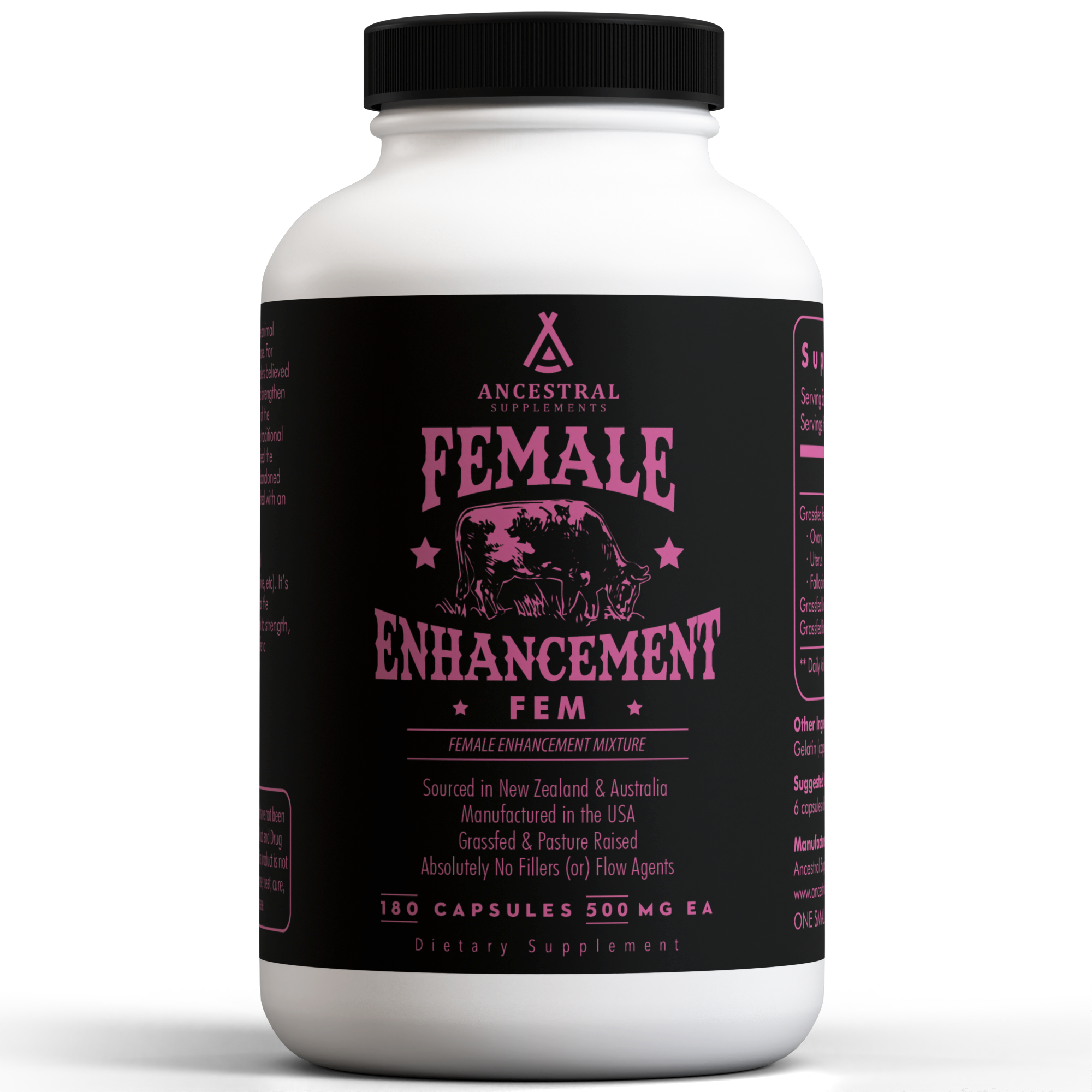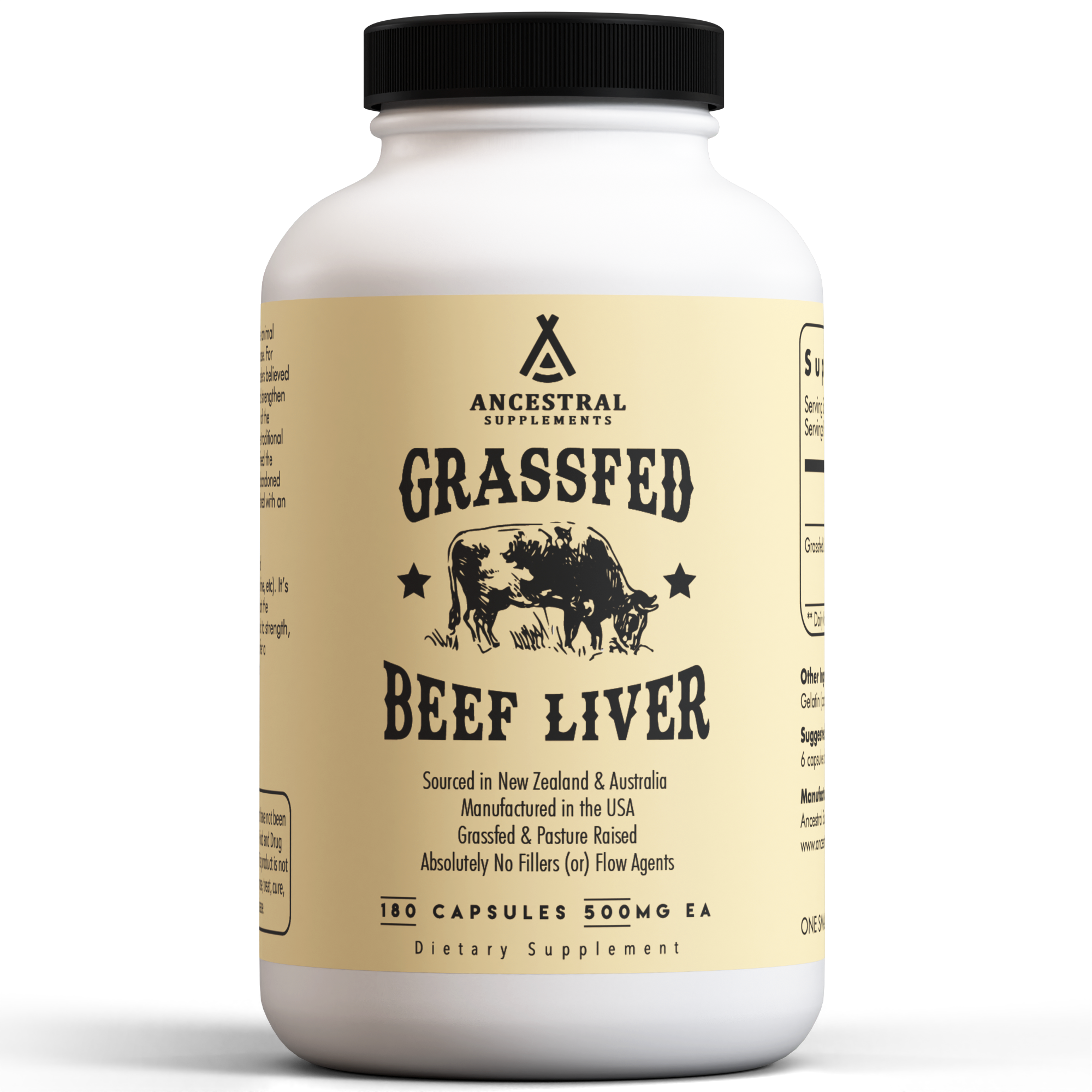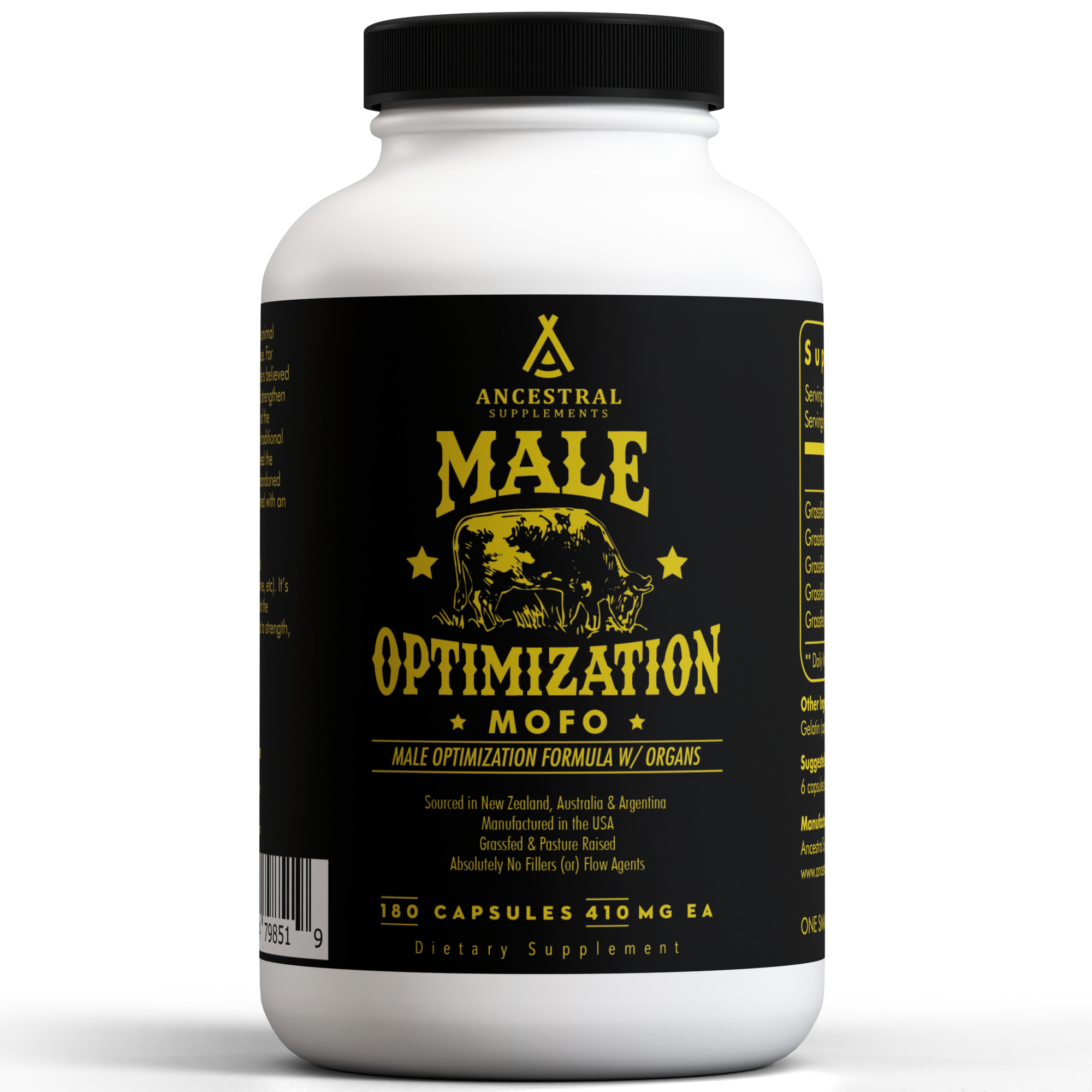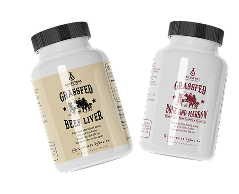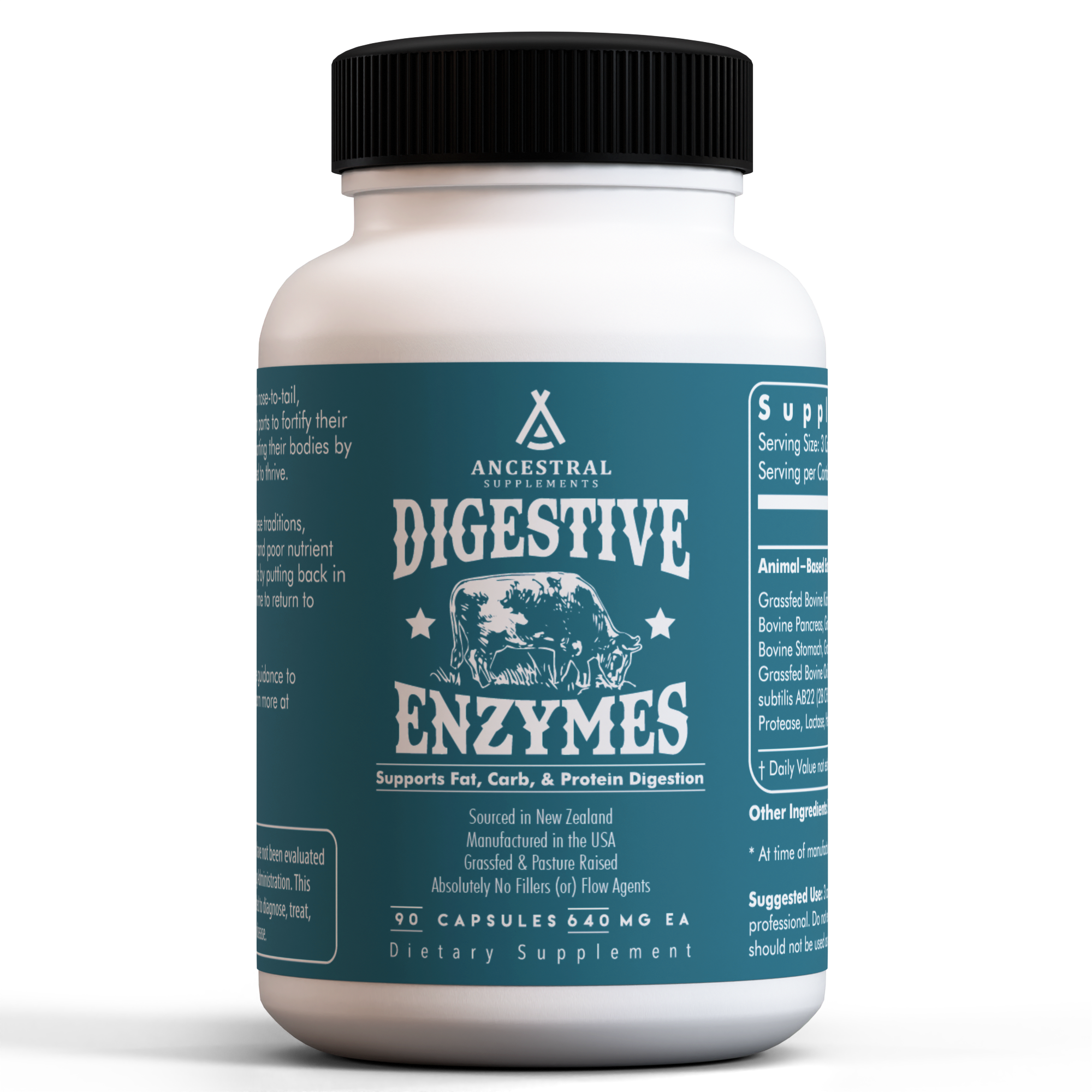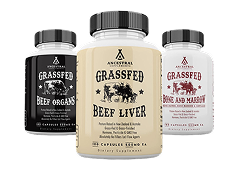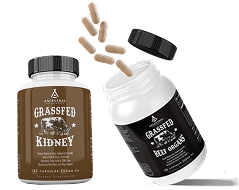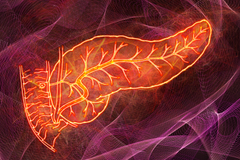5 Extremely Common Nutrient Deficiencies in the Modern World (You May Have)
In a nation known for its abundance of food choices, Americans still suffer from nutritional deficiencies.
Why? Well, for starters… the modern American diet is filled with processed foods. Yet, even when you eat a balanced diet of whole foods, industrial farming and malnourished soil make it difficult to get all the nutrients your body needs. Foods today are simply made to satisfy you, not nourish you.
When your body lacks nutrients, over time you'll begin to feel the effects (and it doesn't take as long as you probably think). Let's dive into the key symptoms you may be experiencing a nutrient deficiency — and how to combat modern deficiencies with ancestral nourishment.
Symptoms of Nutrient Deficiencies
Symptoms of nutrient deficiency can vary widely. It all depends on the specific nutrients your body needs. Overall, common symptoms of nutrient deficiency include:
- Fatigue
- Headaches
- Brittle nails
- Muscle weakness
- Muscle cramps
- Dizziness
- Brain fog
- Changes to the skin
Causes of Nutrient Deficiencies in the Modern World
Believe it or not… The only reason for nutrient deficiencies isn't that you're not consuming enough nutrient-rich whole foods. Here are some of the possible causes of a nutritional deficiency:
Malabsorption
Malabsorption is a condition where the digestive system is unable to properly absorb nutrients from the food you eat. This can lead to deficiencies in essential vitamins, minerals, and other nutrients, even when your diet appears to be balanced and nutritious.
Several factors can contribute to malabsorption, often involving disruptions in the digestive process. Here are some common causes:
- Gastrointestinal disorders: Conditions like celiac disease, Crohn's disease, irritable bowel syndrome (IBS), and inflammatory bowel disease (IBD) can damage the intestinal lining, reducing its ability to absorb nutrients.
- Food allergies and sensitivities: Allergies or sensitivities to specific foods can trigger inflammation and digestive issues, leading to malabsorption.
- Pancreatic disorders: Diseases affecting the pancreas, such as pancreatitis or cystic fibrosis, can hinder the production of digestive enzymes necessary for nutrient absorption.
- Bacterial overgrowth: Overgrowth of harmful bacteria in the small intestine can interfere with nutrient absorption.
- Alcohol: Not only is most alcohol void of any nutritional benefits, but chronic heavy drinking can interfere with your body's ability to absorb nutrients.
- Medications: Research shows cholestyramine, neomycin, and antacids can contribute to malabsorption. Overuse of laxatives may also affect the proper absorption of nutrients.
Less Nutrient-Dense Foods
Foods are significantly less nutrient-dense than they once were, and there are several reasons behind the nutrient decline in modern foods.
Conventional farming often prioritizes high yields and fast growth over nutrient density, making it a primary contributor to nutrient decline. This includes factors such as:
- Soil depletion: Intensive farming practices can lead to soil depletion, causing a decline in essential minerals and nutrients in the soil. Crops grown in nutrient-depleted soil produce less nutritious foods.
- Monocropping: The widespread practice of monocropping, where the same crop is grown repeatedly in the same soil, further depletes the soil of specific nutrients.
- Chemical fertilizers: The use of synthetic chemical fertilizers can promote plant growth but may not provide a wide range of essential micronutrients.
- Genetic modification: Over time, crop varieties have been selected and modified for their ability to produce high yields and withstand pests or environmental stressors. While this has led to increased food production, it has also sometimes resulted in less nutrient-dense crops.
- Harvesting and storage practices: Modern food supply chains often involve long distances and extended periods between harvesting and consumption. During transit and storage, fruits and vegetables may lose some of their nutrient content. Additionally, fruits and vegetables harvested prematurely for transport may not reach their full nutrient potential.
Poor Diet
And last but not least… Yes, eating a diet of processed foods could be preventing you from reaching your daily nutritional needs. Many foods found on grocery store shelves today are high in calories and low in essential nutrients. So, while these processed foods satisfy your body enough to operate day-to-day, they don't nourish your body so that you can experience the fullness of health, happiness, and vitality.
5 Common Nutrient Deficiencies (That Could Be Affecting Your Quality of Life)
Demographic factors play a role in determining which nutrients you're most at risk of being deficient in. Generally speaking, here are five nutrient deficiencies common among the U.S. population:
1. Iron
Iron is an essential mineral that plays a crucial role in transporting oxygen throughout the body. When the body lacks an adequate amount of iron, it can't produce enough red blood cells, leading to a condition known as iron deficiency anemia. This can result in a range of symptoms, including fatigue, weakness, pale skin, and difficulty concentrating.
Consuming foods such as organ meats, spinach, legumes, red meat, and broccoli can help increase your iron levels. Chlorella and spirulina are also two types of algae that help to detoxify the body and are high in protein as well as iron.
2. Vitamin D
Vitamin D is often referred to as the "sunshine vitamin," because our bodies produce it when exposed to sunlight. Vitamin D is crucial for bone health, immune function, and overall well-being. Research shows that 81% of children and 95% of adults are not getting the average recommended amount of daily vitamin D.
One of the simplest ways to combat vitamin D deficiency is to spend more time outdoors. You can also get vitamin D from your diet through foods like fatty fish, eggs, tuna, mushrooms, and our favorite — beef liver.
3. Calcium
Calcium is probably the reason why your parents told you to "drink your milk" when you were a kid. It's an essential mineral responsible for numerous bodily functions. Most notably, it plays a vital role in maintaining strong bones and teeth. However, its significance goes beyond bone health. Calcium also contributes to muscle function, nerve transmission, blood clotting, and the regulation of certain hormones.
Calcium is found in foods beyond dairy products. Collard greens, spinach, kale, lentils, and white beans contain high levels of calcium.
4. Vitamin B12
Vitamin B12 is essential for nerve function, red blood cell production, and DNA synthesis. A deficiency can lead to fatigue, weakness, and neurological problems.
Vitamin B12 is most prevalent in animal products. For that reason, deficiency is common among vegetarians and vegans.
Adding foods like beef, sardines, tuna, salmon, raw milk, and eggs, as well as organ meats, such as liver and kidney, into your diet can help you boost your B12 levels.
5. Potassium
Potassium is an essential electrolyte that contributes to several key bodily functions, including muscle function, nerve function, blood pressure regulation, and fluid balance. Potassium deficiency, also known as hypokalemia, can cause fatigue, muscle weakness and cramps, high blood pressure, heart palpitations, and constipation.
While most people associate potassium with bananas, shockingly, bananas aren't the richest food in potassium. Spinach, swiss chard, avocado, sweet potato, bok choy, beets, broccoli, and cantaloupe all contain higher amounts of potassium.
Addressing the Modern Nutritional Gap
In our relentless pursuit of robust health at Ancestral Supplements, we look to the wisdom of our "hunter-gatherer" ancestors. They intuitively knew that consuming the whole animal along with select fruits and vegetables provided strength and vitality.
That's why we've painstakingly selected the most nourishing foods and put them in a capsule for our modern world.
Animal-Based Greens is an all-in-one supplement that provides digestive and immune support, energy, vitality, and a pathway to the robust health you deserve.
Experience how good bridging the nutritional gap can feel. Learn more about Animal-Based Greens.

